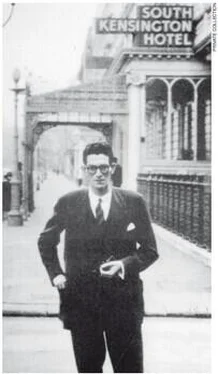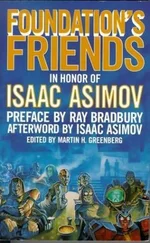Ben Macintyre - A Spy Among Friends
Здесь есть возможность читать онлайн «Ben Macintyre - A Spy Among Friends» весь текст электронной книги совершенно бесплатно (целиком полную версию без сокращений). В некоторых случаях можно слушать аудио, скачать через торрент в формате fb2 и присутствует краткое содержание. Год выпуска: 2014, ISBN: 2014, Издательство: Bloomsbury Publishing, Жанр: Старинная литература, на английском языке. Описание произведения, (предисловие) а так же отзывы посетителей доступны на портале библиотеки ЛибКат.
- Название:A Spy Among Friends
- Автор:
- Издательство:Bloomsbury Publishing
- Жанр:
- Год:2014
- ISBN:9781408851746
- Рейтинг книги:5 / 5. Голосов: 1
-
Избранное:Добавить в избранное
- Отзывы:
-
Ваша оценка:
- 100
- 1
- 2
- 3
- 4
- 5
A Spy Among Friends: краткое содержание, описание и аннотация
Предлагаем к чтению аннотацию, описание, краткое содержание или предисловие (зависит от того, что написал сам автор книги «A Spy Among Friends»). Если вы не нашли необходимую информацию о книге — напишите в комментариях, мы постараемся отыскать её.
A Spy Among Friends — читать онлайн бесплатно полную книгу (весь текст) целиком
Ниже представлен текст книги, разбитый по страницам. Система сохранения места последней прочитанной страницы, позволяет с удобством читать онлайн бесплатно книгу «A Spy Among Friends», без необходимости каждый раз заново искать на чём Вы остановились. Поставьте закладку, и сможете в любой момент перейти на страницу, на которой закончили чтение.
Интервал:
Закладка:
White was a decent man, a good administrator and an adept office politician, but he was no interrogator. The evidence against Philby was still, as he put it, ‘very sketchy’. He was also facing a spy of polished duplicity, who had hidden himself in broad daylight for nearly two decades. It would take a cleverer man than White to discover him. Philby assumed the room was bugged. His stammer gave the conversation a strange, halting quality: perhaps evidence of nerves, perhaps to buy time and sympathy. White first asked about Maclean: Philby said he remembered him from Cambridge, and knew him by reputation, but had not seen him for years and probably would not even recognise him. Then the focus turned to Burgess, and the tension in the room slid up a notch. Philby insisted it was simply unbelievable that any intelligence service, let alone the Russians, would employ someone so wholly unsuited to espionage, ‘an indiscreet, disorganised, drunken, homosexual reprobate’. Philby played his part well, with a careful combination of embarrassment, ingratiation, and self-justification: here was a senior intelligence officer defending himself against the unspoken charge that he had been fooled, and might lose his job through a disastrous friendship. The question of Philby’s own loyalty was never mentioned, never even hinted at, but it hung over the conversation like pipe smoke. The meeting broke up with amicable handshakes. Ever helpful, Philby offered to draw up a summary of the conversation, and said he could be contacted at his mother’s flat. White hinted that they would probably need to meet again soon.
Both men discussed the conversation with Guy Liddell, who wrote in his diary: ‘Kim is extremely worried’. White, for his part, had not found Philby’s answers ‘wholly convincing’. Liddell had been Philby’s friend for twenty years. He knew Guy Burgess well. Anthony Blunt was one of his closest chums. Liddell’s diary betrays a man struggling with the realisation that some, and perhaps all, of his closest friends were spies. ‘I dined with Anthony Blunt,’ he wrote. ‘I feel certain that Blunt was never a conscious collaborator with Burgess in any activities that he may have conducted on behalf of the Comintern.’ His tone was anything but certain. That Burgess and Maclean might be spies, let alone Philby, was ‘hard to believe’. Because he did not want to believe it.
Two days later, Philby was back in White’s office, where the atmosphere was now several degrees chillier. In the interim, a letter had arrived from CIA chief Walter Bedell Smith, drafted by Bill Harvey, and with his indictment attached. Aggressive in tone, and addressed to C in person, it stated that under no circumstances would Philby be permitted to return to Washington. The underlying message was blunt: ‘Fire Philby or we break off the intelligence relationship.’ The relationship was under strain as never before. Noting that confidence in the Foreign Office had been ‘severely shaken’ by the disappearance of Burgess and Maclean, both of whom were obvious security risks, the US urged the British government to ‘clean house regardless of whom may be hurt’. Even more insultingly, Washington suggested that such a security breach would never have happened in the US: ‘In the State Department repeated drunkenness, recurrent nervous breakdowns, sexual deviations and other human frailties are considered security hazards and persons showing any one or more of them are summarily dismissed.’
As Angleton had predicted, MI6 did not take kindly to having one of its officers accused of treachery without hard evidence, let alone the suggestion that the Foreign Office was staffed with drunken, mentally unstable sexual deviants. The bosses of MI6 immediately sent a message to Dick White at MI5, stating ‘their wholehearted commitment to the protection of their protégé and to the reputation of their service’. White was now facing both a looming confrontation with Philby, and a showdown with MI6 itself. At the same time, the dossier on Philby was growing. Investigations had revealed his left-wing leanings at Cambridge, his marriage to a communist, his subsequent swing to the far right, and the defector Krivitsky’s reference to a Soviet spy working as a journalist in Spain during the Civil War. The Volkov case, the wreckage of Operation Valuable, the Homer investigation and the timing of the Burgess and Maclean defections all seemed to indicate, circumstantially if not definitively, that Philby was guilty. ‘While all the points against him are capable of another explanation their cumulative effect is certainly impressive,’ wrote Liddell. In a mark of the deepening suspicion, Philby was awarded his own codename: Peach. Codenames are supposed to be neutral, but very seldom are. It is tempting to see a hidden meaning in the MI5 codename now attached to Philby, for a peach was a most exotic and enticing fruit in a Britain emaciated by wartime rationing, and ripe for the plucking.
Dick White was as polite as before, but more pointed. He invited Philby to describe once again, but in more detail, exactly when he had met Burgess, what he knew of his politics, and how they had become friends. Philby was told to take his time. ‘I’m in no particular hurry,’ said White, with a flicker of impatience. A short lie is easy. An extended lie is far harder, as earlier falsehoods overlap, constrain and contradict the lies that follow. Philby admitted that his first wife had been a communist, but insisted that he had ‘subsequently converted her’ and that ‘he himself had never been a communist’. When asked how Maclean might have discovered he was facing arrest, Philby ‘denied emphatically that he had ever discussed Maclean with Burgess’.
In the midst of a long, rambling answer, White realised, with perfect certainty, that Philby was lying.
White now switched focus, to 1936, and the first trip to Spain as a correspondent for The Times . Philby was quick to correct him: he had initially gone to Spain as a freelancer , and only later taken a staff job with the newspaper. White’s face grew redder, and his collar tighter. How, then, as an impoverished young man, had Philby found the money to travel to Spain and set himself up as a correspondent? It was, Philby later wrote, a ‘nasty little question’ because, as White plainly suspected, the order to go to Spain, and the money to do so, had been provided by Soviet intelligence. Philby blustered that he had sold his books and gramophone records to finance the trip. This was White’s opportunity to pounce, because just a little more probing would have unpicked that answer: how many books? How many records? Did he sell them for cash? Where were the bank records? Instead, White simply logged Philby’s response as another lie. After several more hours, White rose to his feet, indicating that the session was over. This time, they did not shake hands. Philby left the second interview knowing that he was now a prime suspect in White’s eyes. He remained convinced that MI5 had little hard evidence, probably not enough to prosecute, and almost certainly not enough to convict him. But there was more than enough to make him intolerable to MI5, and unemployable by MI6. White sent a memo to Stewart Menzies, laying out the grounds for suspicion against Philby, and suggesting that MI6 take action as a matter of urgency.
Philby was in deep danger. The middle-class hounds of MI5 were baying for his upper-class blood. He was cornered, compromised and running out of ammunition. But he still had allies ready to support him, and one in particular whose loyalty remained as solid and unquestioning as it had ever been.
Nicholas Elliott returned to Britain at the very moment the Philby inquisition was reaching a climax. He now leaped to his friend’s defence with ferocity, alacrity and absolute conviction.
Читать дальшеИнтервал:
Закладка:
Похожие книги на «A Spy Among Friends»
Представляем Вашему вниманию похожие книги на «A Spy Among Friends» списком для выбора. Мы отобрали схожую по названию и смыслу литературу в надежде предоставить читателям больше вариантов отыскать новые, интересные, ещё непрочитанные произведения.
Обсуждение, отзывы о книге «A Spy Among Friends» и просто собственные мнения читателей. Оставьте ваши комментарии, напишите, что Вы думаете о произведении, его смысле или главных героях. Укажите что конкретно понравилось, а что нет, и почему Вы так считаете.












